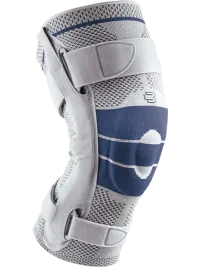
Carpal Tunnel Syndrome
Causes and Risk Factors for Carpal Tunnel Syndrome
-
Female
-
Obesity
-
Pregnancy
-
Hypothyroid
-
Inflammatory Arthritis
-
Elderly
-
Kidney Failure
-
Tobacco Use
-
Alcoholism
-
Repetitive Motion
-
Mucopolysaccharidosis
-
Mucolipidosis
-
Vibration
-
Heat/Cold Extremes
-
Masses
-
Diabetes
-
Fractures
-
Amyloidosis
Trust the Hand Center at OrthoSouth
to Diagnose and Treat Your Wrist Pain
Signs and Symptoms of Carpal Tunnel Syndrome
- Numbness and tingling to the thumb, index, middle and/or ring fingers
- Pain and numbness at night
- Weakness to the hand
- Sensitivity to cold and hot temperatures
Diagnosis
A nerve study is a reasonable study to perform for several reasons. The nerve study helps in determining that the patient has carpal tunnel syndrome, how severe the nerve and muscle are affected, and the relative success that may be obtained following non-operative or surgical treatment.
Non Operative Treatment
Nonsteroidal anti-inflammatory medications may provide some symptoms relief. Bracing at least at night but potentially during the day may be effective treatment by decreasing pressure to the nerve. Activity modifications may be performed to reduce additional pressure to the nerve. Steroid injection may also be an alternative option for patients with carpal tunnel syndrome.
Surgical Treatment Options
Carpal tunnel release is performed to take pressure off of the nerve. Surgery may be performed open or endoscopically, which both give similar long term results for carpal tunnel treatment. Tendon transfers may be an additional surgery to consider if severe muscle weakness is present.
